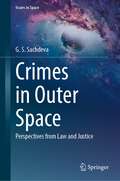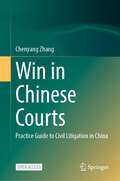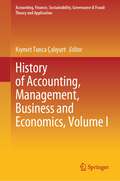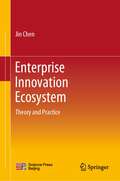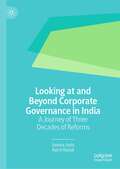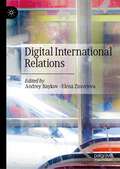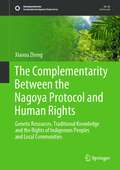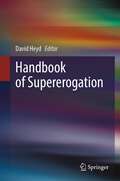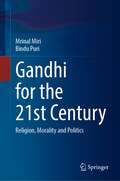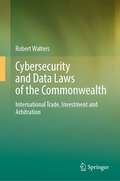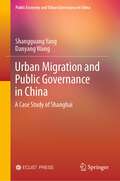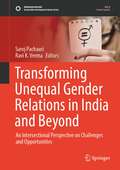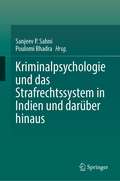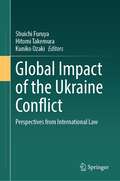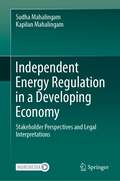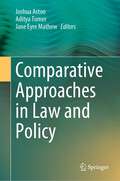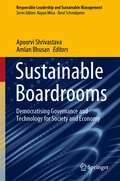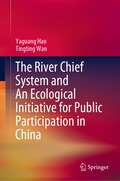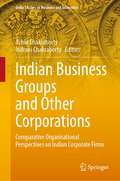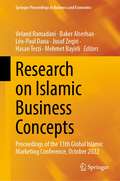- Table View
- List View
Crimes in Outer Space: Perspectives from Law and Justice (Issues in Space)
by G. S. SachdevaThis book flags and contemplates the lurking problem of space crimes that may escalate and expand with diversification of space activities, greater footfall on the celestial bodies and passage of time, for the lack of appropriate solutions. It appraises the incumbent problems to evolve solutions and make recommendations regarding space crime situations. Recognizing current situation where commercial space travel has commenced, and space tourism is not far behind, the book takes a pole position on discussing the topic with its endemic challenges. Space transportation is expected to lead to commercial mining of celestial mineral resources from the Moon and asteroids, as has been found technically feasible and commercially viable. Space-specific products have been identified for industrial mining, processing, and manufacturing, for which manpower would be necessary, howsoever minimal, despite artificial intelligence devices. Blueprints for space habitations on the Moon and Mars are being prepared. In this scenario, where outer space and celestial bodies may soon be inhabited by multi-nationality, multi-ethnic and multi-cultural groupings of tourists, workers, and residents, given cramped and not so comfortable or private living spaces, attitudinal disparities and conflicting beliefs, differences, disputes, conflicts, and crimes are sure to raise their head. Economic activity and business culture may usher in crimes of competition and spying on intellectual property. Space crimes through technologies like cyber, lasers, etc., may also permeate the space domain for ill-intentioned abuses. The criminals may be individuals or collective groups or incognito terrorists. The book also discusses crimes and near-crimes that have already occurred in space but have been ignored or condoned. Absence of sovereignty on celestial bodies coupled with crimes in space or on celestial bodies, presents problems of jurisdiction, extradition, and other legal procedures. The dilemma of multi-national judicial systems, legal codes and norms of social justice need to be resolved by a specialized treaty reconciling major bends in the existing system vis-à-vis the nature of space crimes. Limitations in handling such crimes by the existing judicial system under established doctrines of international law by International Court of Justice or International Criminal Court, is highlighted in the book. It has strong take-aways for research scholars, law fraternity, diplomatic corps, judicial administration, policy-makers and the political class, enabling them to pro-actively initiate action for suitable answers.
Win in Chinese Courts: Practice Guide to Civil Litigation in China
by Chenyang ZhangThis open access book aims to provide an initial but comprehensive roadmap for the Chinese civil litigation system. It starts with some basic concepts of the Chinese judicial system (e.g., court system, case numbering, hierarchical trial system, etc.) and runs through the entire process and most aspects of civil litigation cases (e.g., jurisdiction, service of process, rules of evidence, enforcement, representative actions, etc.). The first target audience for this book is lawyers outside of mainland China. For professors and law students, this book also serves as a window into the Chinese judicial system in a short period of time. It is my hope that this book serves as a backdrop for additional observations of Chinese judicial practice, such as a review of recent cases. This is an open access book.
History of Accounting, Management, Business and Economics, Volume I (Accounting, Finance, Sustainability, Governance & Fraud: Theory and Application)
by Kıymet Tunca ÇalıyurtThis book brings together works written by academics from all over the world on all aspects of business history: accounting history, management history, economic history, audit history, tax history, financial history, and professional history. Writing, transferring and archiving historical knowledge allows future generations to take lessons from the past and make more informed decisions regardless of whether it is in politics, society, or business. "Historization" can also be seen as the first step of institutionalization for private and governmental companies, institutions, professionals, and states. Institutionally managed historical activities, decisions, and results are accepted as a very important reference about the company for decision-makers and stakeholders. Additionally, "historization" is used in the development and promotion of professions. Historization of professions such as certified public accountants, external auditors, internal auditors, economists, tax experts, certified fraud examiners, and managers nationally and internationally has the potential to educate and motivate new entrants to such roles. As such, this book is a valuable read for business historians, professionals in the field, academics, and students of business.
Enterprise Innovation Ecosystem: Theory and Practice
by Jin ChenThis book targets the key issues of both research and practice in innovation and strategic management fields and is regarded as one of the important works explaining enterprises from the innovation system perspective. The book is based on the existing literature involving national innovation system, regional innovation system, and industrial/sectional innovation system and reviews intra-organizational innovation system researches and inter-organizational innovation ecosystem literature. Accordingly, the book proposes a “core competence-based innovation ecosystem framework”, indicating the importance of fit between firms' internal core competence and external innovation ecosystem, which is pivotal for leveraging the sustainable competitiveness advantages. In addition, the book further adopts multiple case studies, involving the firms' innovation ecosystems upon ten typical global enterprises in and out of China – e.g., Apple Inc., Siemens, Procter & Gamble, Microsoft Corporation, Google, Founder Group, Haier Group, China South Railway, Huawei, and Midea. Teachers and researchers from universities in innovation and strategic management fields and industrial management practitioners can benefit from the book.
Looking at and Beyond Corporate Governance in India: A Journey of Three Decades of Reforms
by Seema Joshi Ruchi KansilThis book explores theoretical and empirical perspectives on corporate governance and sustainability and reflects upon India’s three decades of corporate governance reforms. It provides a solid base of information culled from extensive empirical research. It will contribute to the 2030 agenda of the United Nations on Sustainable Development Goals by lighting the way forward and enhancing the convergence of corporate governance with sustainability in business entities. Adopting a credible and uniform sustainability reporting framework and cultivating a pervasive “sustainability culture” through effective “sustainability leadership” has become a business imperative. It will be highly relevant for all stakeholders, including shareholders, boards of directors, managers, academicians, and researchers, and it will empower, enrich, and enable them to gain more conceptual clarity and empirical understanding of corporate governance and sustainability issues. In addition, it shows the pathway for policymakers and practitioners to address the myriad challenges that emanate from sustainability by suggesting new approaches emerging in the critical domain of corporate governance.
One Health Implications of Agrochemicals and their Sustainable Alternatives (Sustainable Development and Biodiversity #34)
by Matthew Chidozie Ogwu Sylvester Chibueze IzahThis book focuses on the United Nations SDG 3, SDG 12, and SDG 15. The book covers the full range of issues associated with agrochemical use from a One Health standpoint to promote a cleaner and safer alternative that leaves little to no negative legacy on Earth’s natural, social, and economic systems. The main focus of the book is to address the biodiversity and human health, food security, and socio-environmental implications of agrochemical use in food production. It deals with the need to move away from the use of harmful chemicals in agriculture. The threat to key aspects of One Health will be used as evidence in support of the need to transition to safer and cleaner food production systems as well as the social, economic, health, and environmental viability of sustainable alternatives. One Health is the innovative convergence approach that encourages collaborative, cross-sectoral, and transdisciplinary methods to monitor, assess, report, and implement shared human health, biodiversity, and environmental challenges and goals such as agrochemical use. Conventional agrochemicals are chemicals used to protect plants, improve crop yield and manage agricultural fields but also have a negative legacy on Earth’s systems. This book is of interest and useful to agricultural trainees and trainers, soil, food and agricultural institutes, food and soil systems specialists, biodiversity and environmental managers, activists, practitioners, and students. It is also a useful read for conservationists and industries interested in promoting organic agriculture for a sustainable community, regional and global development.
Digital International Relations
by Andrey Baykov Elena ZinovievaThe book is the beginning of new interdisciplinary research series at the intersection of international relations, diplomacy, law, economics, and politics on the basis of global digital transformation. Digital international relations form a new mode of interaction between states and in terms of solving the most pressing problems of modernity. Law, economics, diplomacy and education are selected as key areas of human activity that can become the sphere of perspective research of digital international relations. This book will interest diplomats, scholars of international relations, and of international law.
The Complementarity Between the Nagoya Protocol and Human Rights: Genetic Resources, Traditional Knowledge and the Rights of Indigenous Peoples and Local Communities (Sustainable Development Goals Series)
by Xiaoou ZhengThis book studies the questions of how and to what extent the Nagoya Protocol on Access and Benefit-Sharing (ABS) can be interpreted and implemented in light of international human rights law, with a sharpened focus on Indigenous Peoples and local communities. The complementarity thesis is built upon the understanding that ABS and human rights should not and cannot be isolated from one another in order to achieve their respective objectives. A mutually supportive approach to these two bodies of international law is articulated throughout the chapters, covering a wide range of international treaties and ‘soft’ instruments, as well as the practices of the United Nations, international treaty bodies, courts, other international organizations and sometimes NGOs. Legal researchers, legislators and policymakers, human rights practitioners and indeed anyone interested in the development of a more coherent and integrated system of international ABS framework will find this book helpful, with its succinct coverage of current ABS and human rights laws and practices, their pragmatic implications and possible ways of integration forward.
Handbook of Supererogation
by David HeydSupererogation is the category of moral actions which go beyond the call of duty. This collection of articles is the first of its kind to cover the broad spectrum of issues related to supererogation. It provides an up-to-date status of the discussion on the main issues, alternative analyses, and controversies regarding central cases of supererogation. The work explores a broad range of philosophical problems and challenges our presuppositions about the basis of ethical theories. Beyond the challenges of supererogation to deontological and utilitarian views, this book presents the latest developments in the way virtue ethics approaches supererogation. It also discusses the issue of whether there is a negative analogue to the supererogatory: the suberogatory. The Handbook consists also of the first systematic discussion of supererogation from the point of view of five religions as well as a feminist analysis of the concept. The book is an essential read for philosophy scholars interested in moral philosophy.
Syrian Chemical Weapons and International Law
by Tatsuya AbeThis is the first book to focus on international efforts to address Syrian chemical weapons issues in an international law context. It provides an overview of the process of control over Syrian compliance/non-compliance with international obligations, including the keys to success in eliminating Syria’s stockpiles and reasons for difficulties in handling multiple uses of toxic chemicals as weapons in domestic armed conflicts. It also addresses collective and unilateral sanctions against Syria outside of international institutional frameworks, and their implications for subsequent cases. Supported by extensive analyses of developments within the OPCW Executive Council and the UN Security Council, this book is recommended for readers seeking insight about chemical weapons issues and dynamism of international law.
Gandhi for the 21st Century: Religion, Morality and Politics
by Mrinal Miri Bindu PuriThis book examines the centrality of ideas such as satya (truth), ahimsa (non-violence), humility, and respect for understanding moral life in the complex milieu of human existence. It provides a comprehensive view of how Gandhian ideas have both a temporal and spatial universality significantly different from Western modern philosophy's universality claims. The chapters represent different styles of philosophy but with a common purpose, offering insights into how the global debates on religion, morality, and politics are assessed from Gandhi's point of view. Written in language accessible to general readers with an interest in Gandhian thinking, the book will appeal to academics and philosophers.
Cybersecurity and Data Laws of the Commonwealth: International Trade, Investment and Arbitration
by Robert WaltersThe book has been authored by a highly regarded international legal scholar in commercial and private law. The book highlights how the legal landscape for in data protection, cross-border data flows and cybersecurity law is highly diverse and fragmented amongst all commonwealth countries. The book focuses on addressing the gaps in data, cybersecurity and national arbitration law of these countries. The aim of this book is to promote more engagement between commonwealth countries, to ensure they capitalise on the growing digital economy. Notwithstanding the above, the digital economy is rapidly changing the way we work and live. When coupled together cybersecurity and data law will be an important component of the future digital economy. They will both be integral to transnational trade and investment. That said, there will likely be disputes, and international arbitration can be an effective legal mechanism to resolve trade and investment disputes across the digital economy. On that basis, this book augments how the respective laws of commonwealth countries, along with the model data and cyber laws of the Commonwealth should be reviewed to minimise any legal divergence. This book provides a comparison and practical guide for academics, students, and the business community of the current day data protection laws and cross-border data flows among all commonwealth countries.
Urban Migration and Public Governance in China: A Case Study of Shanghai (Public Economy and Urban Governance in China)
by Shangguang Yang Danyang WangThis book, focusing on urban migration and public governance, reviews on the concepts and theories of urban migration and urban governance across the globe and sums up world migration trends and policy changes, coupled with the characteristics and types of China’s urban migration. What differs this book from other books is that it probes into the main factors and mechanisms influencing urban migration and inclusion, and that it adopts Shanghai as a sample and capitalizes on Shanghai’s urban migration data to verify the subjective and objective reasons affecting urban migrants’ inclusion. Moreover, this book takes a further step to conduct a theoretical reflection from the perspectives of population migration and migration policies and explores current dilemmas facing China in terms of urban migration management and possible ways to make a difference. In the final part, this book puts forward some theory-based and practicable countermeasures to transform urban migration governance in China.
Transforming Unequal Gender Relations in India and Beyond: An Intersectional Perspective on Challenges and Opportunities (Sustainable Development Goals Series)
by Saroj Pachauri Ravi K. VermaThis book offers a unique intersectional perspective on gender equality, SDG5. It presents an intersection of gender with caste, class, region, ethnic and sexual identities, and other structural drivers of inequalities in various development sectors. It presents case studies and empirical findings from development practice and policymaking and highlights the challenges to implementing SDG5 in practice. It discusses policies to promote gender equality and prevent violence against women and girls, and women in decision-making and leadership positions. The chapters reinstate that gender equality is possible only if unequal gender norms are transformed to recognize women and girls as independent economic entities and not merely homemakers providing unpaid care. It also analyzes to deconstruct the idea of monolithic masculinity to recognize gender diversity and men’s role in providing care. The book shows how much has been achieved, yet how far is also left to go. It is an essential reference point for researchers, policymakers, students, and scholars across gender studies, women’s studies, and sociology.
Kriminalpsychologie und das Strafrechtssystem in Indien und darüber hinaus
by Sanjeev P. Sahni Poulomi BhadraDieses Buch bietet einen gezielten und umfassenden Überblick über die Kriminalpsychologie in verschiedenen sozioökonomischen und psychosozialen Kontexten. Es informiert die Leser über die Rolle der Psychologie in den verschiedenen Aspekten des Strafrechtsprozesses, angefangen von der Untersuchung einer Straftat bis hin zur Rehabilitation oder Wiedereingliederung des Straftäters. Aktuelle Forschungsergebnisse aus Kriminologie und Psychologie werden erörtert, um die Psyche verschiedener Straftäter zu verstehen, wie man mit ihnen während der Ermittlungen und der Verurteilung effektiv interagieren kann und wie man positive Veränderungen in den verschiedenen Phasen des Strafrechtsprozesses - Ermittlungen, Strafverfolgung, Inhaftierung, Rehabilitation - herbeiführen kann, um die Effizienz des Strafvollzugs zu erhöhen und das Vertrauen der Öffentlichkeit in das Justizsystem zu stärken. Das Buch befasst sich eingehend mit den größeren Problemen einer ganzheitlichen Reduzierung des Anstiegs der Kriminalitätsrate und der Anfälligkeit der Gesellschaft. Jedes Kapitel stützt sich auf führende wissenschaftliche Arbeiten westlicher Wissenschaftler auf diesem Gebiet und ergänzt diese Theorien mit Forschungsergebnissen aus südasiatischer Sicht, insbesondere aus dem indischen Strafrechtssystem. Dieses Buch fasst erfolgreich die Grundlagen der kriminalpsychologischen Literatur zusammen, während es gleichzeitig interdisziplinäre Studien über kriminelles Verhalten und Rechtspsychologie einbezieht und die Lücken des Justizsystems sowie Möglichkeiten für alternative Strafvollzugs- und Rehabilitationsprogramme in den provinziellen Diskurs einbringt.
Global Impact of the Ukraine Conflict: Perspectives from International Law
by Shuichi Furuya Hitomi Takemura Kuniko OzakiThe invasion of Ukraine by the Russian Federation and the subsequent military campaigns entail several classical aspects of armed conflict. First, it is a type of international armed conflict between two sovereign states that had been prevalent until the middle of the twentieth century but not in the last several decades. It is also a direct intervention by a superpower into a neighboring state with the former’s aspiration of territorial expansion. This action evokes a scheme of war reminiscent of the nineteenth or early twentieth century. At the same time, however, the invasion is generating in the international community a sense of new phenomena, leading to a new era that may be different from the past three decades following the end of the Cold War. In fact, the hostilities between the Russian Federation and Ukraine, as well as reactions by other states and international organizations, have raised legal and political issues that require scholars to reexamine existing frameworks of the international community and individual rules of international law. The process of applying international law to states is a dynamic one. Rules of international law may and should regulate the behavior of states and provide standards to decide whether a particular act by a state is permissible. At the same time, however, states may change or replace existing rules, and a significant event or series of such events may be a strong motivator to create a new legal framework. In this regard, rules of international law and the conduct of states are in a dialectical relationship. International law can both shape a mode of conduct and be shaped by that conduct—being its creator as well as its creation. The Ukraine conflict is not an exception. We can discuss the conduct of the Russian Federation, Ukraine, other states and international organizations and evaluate their legality and legitimacy from the viewpoint of existing rules. However, we may also reevaluate the current rules of international law through the lens of the Ukraine conflict and discuss possible changes to those rules in the future. Inspired by the latter aspect of the international legal process, the present book aims to examine the impact of the Ukraine conflict, whether salient or potential, on various rules of international law. Most of the authors are from Japan and other Asian countries that are geographically remote from the site of the conflict. It is often true, however — and particularly in this case — that those keeping an appropriate distance can look at relevant issues in a broader view and from a more objective perspective. To what extent and in what manner may the Ukraine conflict have an impact on the legal framework of the international community and the rules of international law? This book is the first to answer those questions in a comprehensive manner.
Independent Energy Regulation in a Developing Economy: Stakeholder Perspectives and Legal Interpretations
by Sudha Mahalingam Kapilan MahalingamThis book is an introduction to the challenges of independent regulation, a new governance institution introduced in developing economies in the wake of liberalization, to perform the role of a surrogate for competitive markets. It examines, in the Indian context, regulatory interpretation of key provisions of energy laws and regulatory statutes, as manifest in the adjudicatory orders of India’s petroleum and electricity regulators. The objective is to assess regulatory interpretations for consistency with the stated objectives of independent regulation. Comparing regulatory interpretation of energy laws with those of the higher judiciary, this study highlights the divergent perspectives of regulators and the higher judiciary on the role of independent regulation in a liberalized economy. In the process, this research attempts to gauge, not only the extent of regulatory expertise and independence in India’s energy space, but crucially, the Indian government's commitment to independence of regulators. The book also offers a glimpse of the operation of checks and balances in a relatively new institution situated outside the scope of the conventional Madisonian framework. Framed against the backdrop of extant regulatory theories, this book is of interest to regulators, policy makers, utility executives, students of law, economics and regulatory studies as well as lawyers interpreting regulators’ remit and role in a liberalized economy.
Environmental and Resource Protection Law
by Ke Zhou Luozhi Yi Xinjian Su Youhai SunThis book mainly focuses on environmental and resource law under Chinese law, involving secondary disciplines such as international law, civil law, administrative law and criminal law, as well as issues related to other first-class disciplines such as environmental science and ecology. The contents include general theory of environmental law (basic theory), prevention and control of environmental pollution, natural resources protection law and international environmental law. It basically covers all fields of China's environmental law and is a handy reference for those seeking to understand it.
Comparative Approaches in Law and Policy
by Joshua Aston Aditya Tomer Jane Eyre MathewThis book encompasses areas of research like comparative constitution, transformative constitution, environmental law, family law, child rights and so on. The main theme of the book is comparative law. We intend to incorporate into this book laws pertaining to diverse field wherein it can be compared with the laws of other countries which brings in better understanding and conceptual clarity. The book focuses on the jurisprudence of different countries which enables the readers or clientele to get a better understanding of the principles of comparative law. The book showcases the comparative law jurisprudence prevalent across the globe so as to make use of the best practices for the betterment of humanity.
The Right to Privacy 1914–1948: The Lost Years (SpringerBriefs in Law)
by Megan RichardsonThe book offers a provocative review of thinking about privacy and identity in the years encompassing and disrupted by the two world wars of the first half of the twentieth century – focusing (in particular) on the socio-technological transformations associated with modernism. It argues that, with many of the most interesting modern thinkers of the period dead or marginalised (or both) by 1948, their ideas about how rights such as privacy should develop to accommodate the exigencies of modern life failed to find much of a voice in the drafting of the Universal Declaration of Human Rights. Yet they anticipated in surprising ways some of our ‘new’ ways of thinking in more recent times. After a brief introduction, the chapters are framed in terms of case studies on the right to privacy, the right to data protection and the right to be forgotten, each finishing with a consideration of how these rights require further rethinking in the digital century.
Sustainable Boardrooms: Democratising Governance and Technology for Society and Economy (Responsible Leadership and Sustainable Management)
by Apoorvi Shrivastava Amlan BhusanThis book discusses various interactions in the sustainability and development sector. It presents a thematic approach to describe progressive models and cases on disruptions, innovations, regulatory and institutional evolution related to the area of sustainability, through an organizational and boardroom level governance lens. It documents how certain schools of thought, models of engagement and methods-platforms-practices impact society and while doing so, brings together varying theoretical debates, practicing models and instruments of transformation in green governance. Sustainable policy making demands a whole of government approach in decision-making processes. Further, inclusiveness and ‘green’ consciousness of corporate boardrooms are paramount, without which, effective socially responsible business practices are absurd. Human resource development, shaped on sustainable corporate ethics, requires well-trained sustainability specialists, managers that can think ‘green’ in their overall decision making which are essential for green governance. In this context, the book creates a functional, interpretive repertoire of stories, commentaries, life experiences, and reflections of corporate leaders, academics, and practicing consultants, on their decision-making processes, and how they interpret sustainability. These stories and thoughts help create a functional academic construct, which will assist academics teach ‘green’ competencies to business school students better, and entrepreneurs and business executives to better understand the idea of sustainable growth.
The River Chief System and An Ecological Initiative for Public Participation in China
by Yaguang Hao Tingting WanThis book provides an alternative agenda to deepening the understanding of the River Chief System as a distinctive responsibility approach to solve water pollution and associated governance dilemmas. Insightful analysis is performed through in-depth studies of the origins of China’s River Chief System, responsibility mechanisms, governmental and civil river chiefs, formal and informal water governing institutions, public participation, empowerment with accountability, and the environmental impact.
Biology of Forensically Important Invertebrates
by Shyamasree Ghosh Dhriti BanerjeeThis book emphasizes the important role of invertebrates in forensic sciences in the detection of crimes, determining the time and place of death, estimating the minimum Post-Mortem Interval (PMI), and determining the cause of death. The initial chapter discusses the forensically essential invertebrates, especially flies under Order Diptera. Further, the book highlights the importance, biology, taxonomy, and biodiversity of flies under Order Diptera with forensic importance. It also discusses the Cuticular HydroCarbons (CHC) and spectrometry-based studies reported from flies and larvae of forensic importance. It further reviews the importance of DNA barcoding in molecular taxonomy-based studies on forensic flies through understanding, identification, and grouping the organisms. Towards the end, this book presents the applications and limitations of forensic entomology in cases of animal cruelty to a veterinary professional.
Indian Business Groups and Other Corporations: Comparative Organisational Perspectives on Indian Corporate Firms (India Studies in Business and Economics)
by Achin Chakraborty Indrani ChakrabortyThis book contributes to growing literature on the role of business groups in the development of corporate sector and contains perspectives from the Indian economy. It brings together an array of well-researched papers that provide a comprehensive understanding of evolution and nature of the Indian business groups, as well as various aspects of their functioning. All chapters are primarily empirical, use appropriate quantitative techniques and are strongly grounded in relevant theories. This fine combination of data, techniques and theories is expected to provide the reader with in-depth understanding of the complex structures and behaviour of firms affiliated to business groups. Readers interested in the Indian corporate sector, especially Indian business groups, will find the book useful.
Research on Islamic Business Concepts: Proceedings of the 13th Global Islamic Marketing Conference, October 2022 (Springer Proceedings in Business and Economics)
by Veland Ramadani Baker Alserhan Léo-Paul Dana Jusuf Zeqiri Hasan Terzi Mehmet BayirliThis proceedings volume presents selected chapters from the 13th Global Islamic Marketing Conference, featuring contributions from renowned experts from around the world. The chapters offer an up-to-date overview of research and insights into Islamic business practices, with a specific focus on Islamic marketing and entrepreneurship strategies. Authored by experts hailing from diverse countries such as Malaysia, Indonesia, India, Pakistan, United Arab Emirates, Jordan, and Morocco, the chapters collectively provide a comprehensive understanding of the subject matter. Covering a wide range of topics including understanding Muslim consumer behavior and marketing, halal tourism and healthcare, entrepreneurship and business in Muslim societies, women empowerment and entrepreneurship, Islamic ethics and values in organizations, psychological factors and social issues, technology and future trends, and social and labor issues in Muslim societies, this book encompasses a global perspective on the subject matter. With the expertise and diverse backgrounds of the contributing authors, this book serves as an invaluable resource for researchers interested in delving into the intricacies of Islamic business practices. It also offers valuable insights and practical implications for business consultants seeking a deep understanding of conducting business in Islam-oriented regions. The collective knowledge and experiences shared by these renowned experts contribute to a comprehensive exploration of the topic, making this volume a significant contribution to the field of Islamic marketing and business studies.
